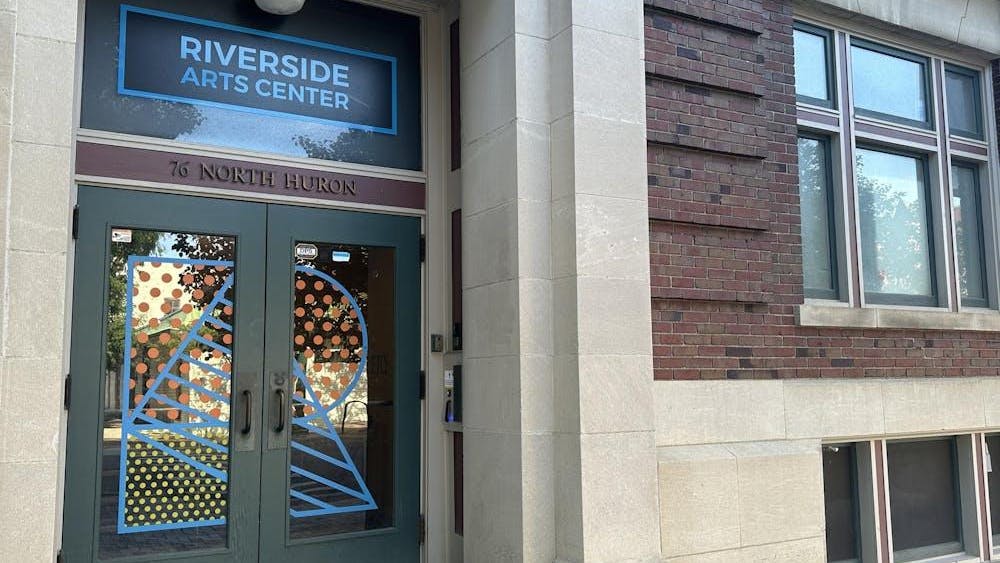A discussion and viewing of the documentary film “In Whose Honor” was held Tuesday night at the student center as part of the events for Native American Heritage Month.
This 1997 film, which was first aired on a PBS series, discusses the issue of Native American sports and school mascots.
The event was facilitated by Lori Burlingame, Eastern Michigan University professor and faculty adviser to the Native American Student Organization.
“In this area, locally at some of the high schools and here at Eastern, the mascot issue has come to the forefront and, as a result of the discussions about it, Eastern decided to change its mascot from the Hurons to the Eagles,” Burlingame said.
She also said a more recent school to change its mascot was Ypsilanti High School, which got rid of the Braves as its mascot in 2006 and changed it to the Phoenix in 2007.
Other area schools still have Native American mascots, like Clinton and Milan.
The main focus of “In Whose Honor” is the story of Charlene Teters, one of the first to campaign for the end of Native American mascots.
Teters explained in the film she first began protesting after she took her kids to a basketball game at the University of Illinois, where she was a student, and they were shocked at the mascot named Chief Illinewek who was a non-Native American dancing around in traditional Native American apparel.
She then started protesting outside sporting events where Chief Illiniwek was present, and she said in the film that some people spit on her, intimidated her and even sexually harassed her.
Chief Illiniwek is no longer the official university mascot of the University of Illinois, but students and alumni have shown their continued recognition of the former mascot with groups such as Students for Chief Illiniwek.
Sen. Rick Winkel, R-Champaign, Ill., supported keeping Chief Illiniwek as the mascot and even said on film,” Minority rights are not always right,” in defense of his position.
In the film, arguments for the end of Native American mascots included that the images promote stereotypes and use Native religion and traditions as entertainment spectacles.
Also, some of those interviewed in the film said the names of the mascots are racial slurs that are demeaning, like “Re**kins”, which they said is as bad as any other racial slur. This mascot is currently used by the Washington NFL team as well as Clinton High School.
Those who wanted Native American mascots to be kept said these mascots were traditions of their institutions and were not derogatory but preserved Native American culture.
A 2001 survey conducted by Indian Country Today, a weekly Native American newspaper, found 81 percent of its readers thought the use of Native American mascots was derogatory or offensive.
The NCAA has not banned colleges from using Native American mascots for their sports teams, but it did design a policy that addresses the issue in 2005.
The NCAA Web site says: “The actual policy precludes member schools with Native American nicknames, mascots, or imagery from hosting NCAA championships. These schools are still eligible to participate in championships, but the policy restricts them from wearing uniforms or other paraphernalia that depict nicknames or images while competing in NCAA championship events.
The NCAA does exempt some schools from this policy if the issue is reviewed and an endorsement is given by the tribe lending its name to the school.
Schools that have been given exemption from this policy include Central Michigan University, the University of Utah and Florida State University, according to a list on the NCAA’s Web site.










